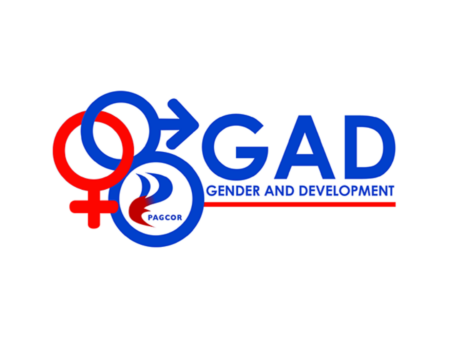In a dramatic turn of events, Alice Guo, the former mayor of Bamban, Tarlac, has been arrested in Tangerang City, Jakarta, Indonesia. The ex-mayor, who has been embroiled in numerous controversies, was wanted by the Philippine Senate for allegedly evading a congressional probe. Her arrest marks a significant moment in the ongoing investigation surrounding her alleged criminal activities, including links to illegal Philippine Offshore Gaming Operators (POGO) and human trafficking.
This development comes on the heels of her suspension and eventual dismissal from public office, which has dominated headlines in both the Philippines and across Asia. In this article, we delve into the complexities of the case, the impact on Philippine politics, and what lies ahead for Guo as she faces extradition and trial.
The Arrest of Alice Guo: A Long-Awaited Development
Alice Guo’s arrest in Jakarta followed months of speculation and anticipation. According to Asian news media, the fugitive ex-mayor was apprehended by the Indonesian Police in coordination with Philippine authorities. She had been evading authorities since her refusal to attend a congressional inquiry into her alleged criminal ties.
The Philippine Justice Department, in a formal statement, confirmed that Guo is currently in custody at Jatanras Mabes Polri, under the supervision of the Indonesian police. Justice Secretary Jesus Crispin Remulla assured that all legal protocols would be followed to ensure that Guo is brought back to the Philippines to face charges. “This is a significant step towards holding her accountable,” Remulla noted, highlighting the importance of international cooperation in this high-profile case.
The Allegations: Illegal POGO Operations and Human Trafficking
The charges against Alice Guo stem from her alleged involvement in illegal POGO operations in the Philippines, which have been a growing concern for law enforcement. POGO, an industry that once thrived in the country, has recently come under intense scrutiny due to its association with organized crime, money laundering, and human trafficking.
In June, Guo had initially demanded a fair probe after allegations surfaced linking her to these illegal operations. Despite her protests, she was suspended and later expelled from her political party, further deepening her political and legal troubles.
The allegations took a more serious turn when Guo was charged with human trafficking in connection to the POGO activities. It is believed that her operations exploited vulnerable individuals, employing them under abusive conditions in offshore gaming hubs.
Dismissal and Departure: The Downfall of a Political Figure
In August, the Philippine Ombudsman ordered the dismissal of Alice Guo from her post as mayor, along with the forfeiture of her retirement benefits. She was also permanently barred from holding any public office in the future. This decision came just before her departure from the Philippines, adding to the suspicion that she had fled the country to avoid legal consequences.
The Ombudsman’s ruling is viewed as a landmark decision in Philippine politics, signaling a no-nonsense approach to public officials implicated in corruption and illegal activities. However, Guo’s departure from the country and subsequent arrest in Jakarta have only fueled the ongoing debate about how the justice system handles high-profile figures.
The Extradition Process: What Comes Next?
Alice Guo’s arrest in Indonesia has raised questions about the next steps in her legal journey. The extradition process will likely be lengthy, involving legal negotiations between the Philippine government and Indonesian authorities. Justice Secretary Remulla has stated that Guo will face due process, and all legal measures will be observed to ensure a fair trial once she is back on Philippine soil.
While Guo maintains her innocence, labeling the accusations as “malicious,” legal experts believe the evidence against her is strong. Once extradited, she will face an array of charges, including her role in facilitating illegal gambling operations and her involvement in human trafficking networks.
Political Fallout: The Rebranding of POGOs and Public Opinion
The arrest of Alice Guo has sparked renewed discussion around the controversial POGO industry, which has been a contentious issue in the Philippines for several years. Senate Deputy Minority Leader Risa Hontiveros has been vocal about the dangers posed by POGOs, calling for strict enforcement of the President’s total ban on the industry.
Hontiveros expressed concerns over the rebranding of POGOs following a recent raid on a suspected POGO hub in Lapu-Lapu City, Cebu. She warned that these operations are constantly adapting to circumvent government crackdowns and urged law enforcement agencies to remain vigilant.
POGOs, initially introduced to boost the Philippine economy, have now become a liability due to their association with criminal activities. The involvement of prominent political figures like Alice Guo has further tarnished the industry’s image, leading to widespread public outcry for stronger regulation and enforcement.
Public Reaction and the Future of Anti-Corruption Efforts
The arrest of Alice Guo has received mixed reactions from the public. Many see it as a victory for the rule of law and a step towards greater accountability for public officials. However, there are also concerns that her arrest and subsequent trial could become highly politicized, potentially complicating the pursuit of justice.
Guo’s case could serve as a catalyst for broader anti-corruption efforts in the Philippines, especially as the government continues to confront the challenges posed by illegal POGO operations and other criminal enterprises. The government’s handling of this high-profile case will likely set the tone for future investigations involving public officials and illegal businesses.
International Cooperation in Law Enforcement
Alice Guo’s arrest underscores the growing importance of international cooperation in law enforcement, particularly in combating cross-border crimes. The collaboration between the Philippines and Indonesia in apprehending Guo highlights how countries can work together to hold individuals accountable, regardless of where they seek refuge.
As more public figures and business leaders become involved in global criminal activities, such collaborations will be crucial in ensuring that justice is served. Alice Guo’s arrest serves as a reminder that evading the law by crossing borders is becoming increasingly difficult in today’s interconnected world.
Conclusion: The Arrest
The arrest of Alice Guo in Jakarta marks a significant moment in both Philippine politics and international law enforcement. As she faces extradition and trial, her case will be closely watched by legal experts, politicians, and the public alike. The charges against her are grave, and if found guilty, her downfall will serve as a stark warning to others in positions of power.
FAQs About the Arrest of Former Mayor Alice Guo in Indonesia
1. Who is Alice Guo?
Alice Guo is the former mayor of Bamban, Tarlac, in the Philippines. She has been involved in various controversies and was wanted by the Philippine Senate for allegedly evading a congressional probe into her criminal activities.
2. Why was Alice Guo arrested?
Alice Guo was arrested in Tangerang City, Jakarta, Indonesia, for allegedly evading a congressional investigation. She faces charges related to illegal Philippine Offshore Gaming Operators (POGO) and human trafficking.
3. Where was Alice Guo arrested?
Alice Guo was apprehended in Jakarta, Indonesia, by Indonesian Police in coordination with Philippine authorities after evading law enforcement for months.
4. What are the main allegations against Alice Guo?
The charges against Guo include her involvement in illegal POGO operations in the Philippines and human trafficking linked to these activities. She is accused of exploiting vulnerable individuals in abusive working conditions.
5. What happened to Alice Guo in her role as mayor?
Alice Guo was suspended and later dismissed from her position as mayor of Bamban, Tarlac. She was also permanently barred from holding any public office by the Philippine Ombudsman.
6. What is POGO, and why is it controversial?
POGO stands for Philippine Offshore Gaming Operators. These operations have come under scrutiny for links to organized crime, money laundering, and human trafficking. Guo’s alleged involvement with POGO has made the issue more controversial.
7. What is the significance of Alice Guo’s arrest?
Her arrest marks a critical moment in Philippine politics and international law enforcement. It highlights the importance of international cooperation in holding individuals accountable for cross-border criminal activities.
8. What is the extradition process for Alice Guo?
Guo is expected to face extradition from Indonesia to the Philippines. The process involves legal negotiations between the two countries to ensure she faces due process and a fair trial.
9. What is the public reaction to Alice Guo’s arrest?
The public reaction has been mixed. Some see it as a victory for the rule of law, while others are concerned that her trial could become highly politicized, affecting the pursuit of justice.
10. What is the broader impact of Alice Guo’s case?
Her case may influence anti-corruption efforts in the Philippines and raise awareness about the dangers of illegal POGO operations. It also emphasizes the role of international cooperation in combating global criminal activities.


















